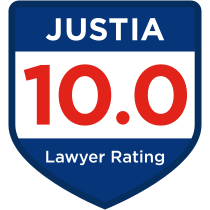- Available 24/7: 678-935-6268 Tap Here To Call Us
The Digital Recognition Network (DRN) Can Track Every Move You Make. And it will find you using something similar to Google Maps
The Digital Recognition Network (DRN) Can Track Every Move You Make. And it will find you using something similar to Google Maps!
The Digital Recognition Network is a privately funded network that collects billions of data for private use. In this article, let’s explore just one of the pieces of data it collects.
The DRN worked with someone to see if it could track a car by using the private companies that link their data to DRN. It turns out it tracked the car in real-time and provided photos of the car parked at its residence from a few weeks to a few years back. Each photo of the car was tracked with a timestamp and GPS coordinates.
Not only is this a matter of personal security, but this also becomes a larger question as to what would DRN need to do with all the photos they collect? Are lawyers, cops, and innocent/guilty people able to have access to this private network of data?
This private data network is used to collect license plates, and use them to find cars for paying customers. Within the last ten years, the company has hired repo men to drive around the country in unmarked cars to scan every license plate it sees.
Getting the photographs helps the repo men find cars that are marked for repossession. However, the cameras are collecting images of all the cars they pass. And these images are added to the DRN database. DRN has over 600 “affiliates” collecting data for clients, and these affiliates are paid a monthly bonus for gathering data.
While a government entity does not run DRN, law enforcement agents do have access to it. Not only that, DRN claims that it is a private surveillance company crowdsourced by repo men throughout the country and those who have installed the DRN cameras into their vehicles. All this information is available to private industries, individuals, and companies focused on people who are looking for someone or looking for a vehicle.
The kicker is to those who aren’t suspective of a crime or are behind on car payments—your information can still be in DRN’s database. When the company obtained the contract from DRN, it claimed to have more than 9 billion license plates scanned.
Currently, there is an argument about the freedom of speech (First Amendment) and the freedom to not be unreasonably searched or seized (Fourteenth Amendment). And while privacy activists argue for the Fourteenth Amendment, DRN claims that if they aren’t allowed to continue their services, the First Amendment rights will be violated.
My firm uses the most modern pieces of technology to win cases, including using the DRN to find a witness, present an alibi defense, or explore additional defenses. From the lowest-paying client to the highest paying client, everyone has the ability to win with a great lawyer who knows how to use technology.










